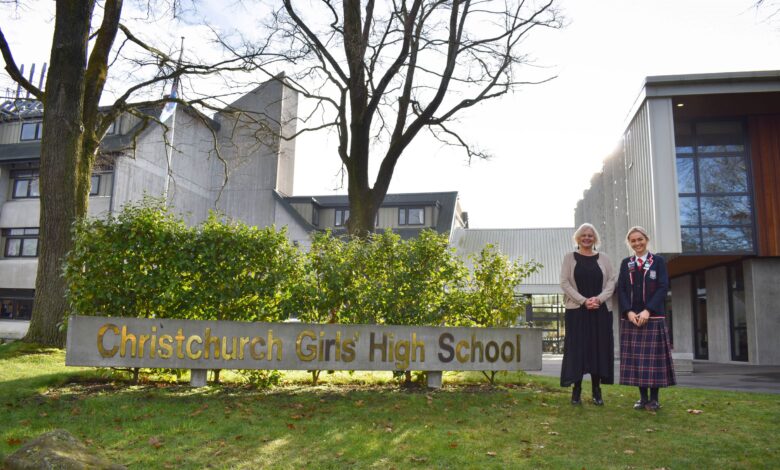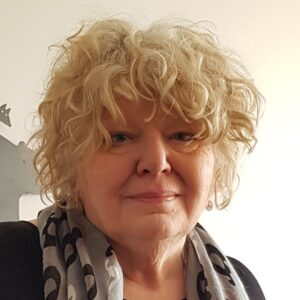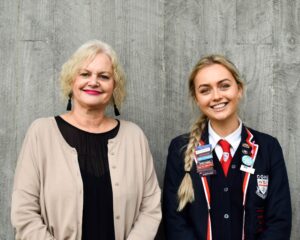Christchurch Girls’ High sexual harassment survey – shock findings

A survey commissioned by Christchurch Girls’ High School into sexual harassment experienced by students reveals harrowing findings and presents ‘a compelling case for action’.
Over half of the 725 girls surveyed said they had been sexually harassed, with a quarter of these stating it had happened 10 or more times. More than 20 students revealed they had been raped.
School Principal, Christine O’Neill, told School News NZ, “The Board of Trustees commissioned this survey on sexual harassment following concerns being raised by our students earlier this year. It was clear we needed to know what was actually happening, how prevalent it was and how our young women and rainbow community deal with it.
“The number of incidents, as well as the lack of reporting and the fact that our students have normalised this totally unacceptable behaviour, are all very concerning.”
Ms O’Neill said additional support had been put in place at the school for both staff and students. “As expected, the survey results were triggering for a number of them and the safety and wellbeing of our staff and students are our number one priorities. In fact, that is why we commissioned this survey. Everyone has a right to feel safe and clearly they don’t.
“We would encourage parents and caregivers to talk to their teen, start a conversation. They need our support and involvement.”
Researcher, Liz Gordon who undertook the survey work, said, “No-one reading this report can remain unmoved and shocked about what it discloses about the treatment of young women in our society now. The harassment, and its effects, constitute barriers that will shape and change the lives of those affected…
One of the many alarming findings, was the lack of reporting of sexual crimes, she says. “A key concern of this study is the very low level of reporting, including, apparently no reporting of individual or group assaults revealed in the study.
“The main barrier to reporting is the tendency for the victims of sexual harassment to be ashamed or embarrassed, and often to blame themselves, or fear that others will blame them. These barriers lead to unprecedented hiding of potentially serious crimes, and the potential also for perpetrators to realise they have got away with it and do it again.
“We know that victims hold on to the trauma related to sexual abuse for 50-60 years. It is not OK that so many of our young people, or indeed anyone sees sexual harassment as part of everyday life,” she says. “The prevalence of sexual assault and harassment and the lack of reporting should also be of major concern to everyone.”

There are many similarities between what the CGHS survey has found and what was reported in a report from OFSTED (Office for Standards in Education, Children’s Services and Skills) in the UK earlier this month, with Dr
Gordon indicating this suggests a worrying global societal pattern. She said, “Also mirrored in our survey is the way our young people change their lives to manage the sexual harassment. This includes dressing in baggy clothing to hide their bodies, travelling different routes to avoid harassers and changing their social lives to reduce potential interactions with harassers.”
CGHS Head Girl, Amiria Tikao, says she is not surprised by the survey results. She says she and her peers live with sexual harassment every day – and done have for years. She said, “I am sorry to say this is not a surprise.
“I think adults are likely to find it more shocking than we do. What we need to do now is work with our students to support them to manage issues they may be dealing with and empower everyone, everywhere to call this kind of behaviour out.”

Principal O’Neill says she is immensely proud of all the students who took part in the survey for the courage and strength they have shown to share such personal, and in some of cases, very confronting experiences. She pours praise on CGHS head girl. “Amiria Tikao, has been a leading light in communicating the issues since the report went public and we thank her for her bravery and fortitude,” she adds.
In the report, Dr Liz Gordon summarises the students’ aims. “Their main demand is to educate young men about the effects their abuse has on young women, how to stop being abusive and turn around their culture.”
She says, “There is a compelling case for action.”
As far as next steps, Principal O’Neill tells School News, “The survey participants noted that more and better education is needed. We believe that education should cover healthy relationships, consent and harassment. Also resourcing organisations like the NGO Loves Me Not is really key.
“Better resourcing and funding, we would definitely support that. There should be more research to establish whether these issues are common around the country, and in what sorts of numbers?
“The kōrero now must happen between Ministers, schools, community support agencies and the Education Review Office (ERO). As our Head Girl, Amiria Tikao, said so eloquently on Monday, we have lit the fuse; it must not be allowed to go out.”










I congratulate the girls for being able to talk about the problem.Too often we keep problems bottled inside ourselves and they keep gnawing at us.I am 85 and know the feeling well.
Thank you for sharing this Francie. I’ve duly forwarded your words on to Principal O’Neill and the students. Ngā mihi nui.